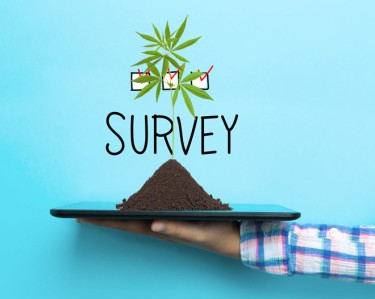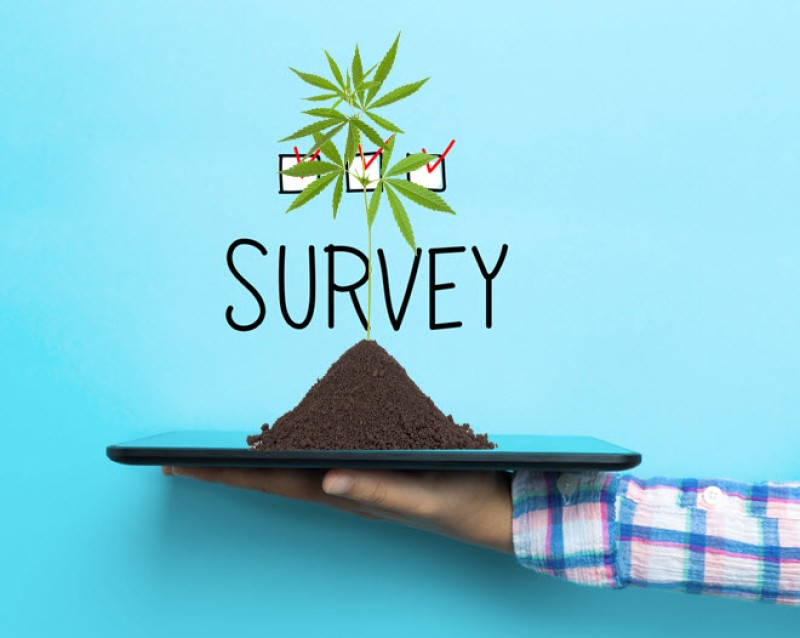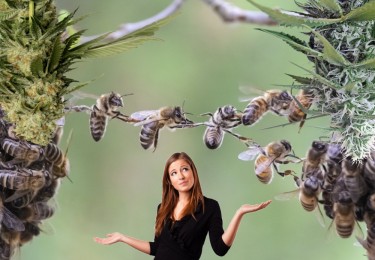US Department of Agriculture Mails Out First Ever Hemp Survey

It is no news that the cannabis industry is going through an unprecedented level of evolution over the last few years. More countries are legalizing cannabis and it is increasingly accessible to users. Technology has also contributed to the growth of the cannabis industry, with better growing methods and DNA sequencing improving the quality of cannabis on offer. There are also more types of cannabis products than ever, for users to choose from. With the general growth of the industry, it is essential for government of countries to put policies and infrastructure in place. This is what the United States Department of Agriculture seeks to achieve with its hemp survey.
The First Ever Hemp Survey in The United States of America
This hemp survey is the first of its kind in the United States of America, and it is not a random event by any means. The hemp survey tagged “Hemp Acreage and Production Survey” was set up by the Department of Agriculture after getting permission from the White House earlier in the year. The survey was conducted for 20,500 hemp farmers. After permission was granted, an announcement was made in August by the National Agricultural Statistics Service (NASS) about the finalization of the forms, which will be sent out to the hemp farmers by mail. Addressing the public, NASS put a statement saying “The Hemp Acreage and Production Survey collects information on the acreage, yield, production, price, and value of hemp in the United States.” “The Domestic Hemp Production Program established in the Agriculture Improvement Act of 2018 (2018 Farm Bill) allows for the cultivation of hemp under certain conditions. The Hemp Acreage and Production Survey will provide needed data about the hemp industry to assist producers, regulatory agencies, state governments, processors and other key industry entities.” The survey was sent out in October, and responses have started coming in. The survey which was mailed out to the 20,500 hemp farmers is to be submitted by October 25
What The Survey Entails
One might wonder what the survey entails and how it can help the cannabis industry. The survey is basically an inquiry into the production process of different hemp farmers. The questions asked includes the primary and secondary uses for their hemp, how they carry out outdoor cultivation and the challenges that they encounter, the amount of acreage used for production, as well as the prices which producers bring in. Apart from the production process, questions were also asked different products such as CBD and other extracts, smokeable hemp, as well as fiber and seeds. Other issues that were addressed in the survey includes the source of seeds and clones, whether or not hemp farmers hand-trim their crop, and also if they extract terpenes and cannabinoids from the plant.
The Reception of The Hemp Acreage and Production Survey
The Department of Agriculture has started receiving responses from hemp farmers all over the country. On their part, state agriculture departments are working tirelessly trying to encourage local farmers to take the survey. The reason for this is not far-fetched, as a large volume of response from a state hints at the presence of a big hemp market. This will give the Department of Agriculture enough data to analyse, as regards the needs of the cannabis industry in such state. In addition, states with a lot of active hemp farmers and a big hemp market will be most attractive to investors looking to enter the hemp industry as well as ancillary. Furthermore, a state with a large market will be most suitable for grants and assistance from the government. It is because of these benefits that states such as Minnesota, Maryland, North Carolina, New Mexico, South Dakota, Washington State, Oregon, Texas, and Virginia have made posts on different social media platforms, urging hemp farmers in their respective states to take the survey. This has given the survey widespread awareness across the several states.
Speaking about the importance of the survey, Kevin Barnes, the acting administrator of the National Agricultural Statistics Service (NASS) explained that it will go a long way in putting a structure in place for the industry. “This inaugural hemp survey will establish a necessary benchmark and provide critically-needed data for the hemp industry.” Barnes said “The information collected can help inform producers’ decisions about growing, harvesting, and selling hemp as well as the type of hemp they decide to produce. The resulting data will also foster greater understanding of the hemp production landscape across regulatory agencies, producers, state and tribal governments, processors and other key industry entities.” He continued.
This underlines the importance of this survey, and how the information gained will go a long way in developing and regulating the industry.
The Role of the US Department of Agriculture in the Hemp Industry
The Department of Agriculture has been a mainstay in the hemp industry, right from the legalization of the crop in 2018 to this day. Hemp was legalized in the country through the Farm Bill. Information concerning the final rule on hemp production was then released on January 19, 2021. This rule came into effect on March 22, 2021 and has been operational since then. The rules are as follows:
-
0.3 percent THC limitation in a case in which the product is less than one percent, no longer passes as negligence.
-
Any product that does not meet the 0.3 percent THC requirement should be immediately destroyed. This destruction could be by burial, burning or composting.
-
Hemp testing should always be conducted by DEA-registered facilities, taking effect from December 31, 2022.
-
Hemp samples should be gathered after harvest for a period of 30 days.
-
Performance-based sampling should be carried out.
-
Tribes should handle cases that come up within their jurisdiction
Conclusion
This survey is a big step in the right direction for the cannabis industry in the United States of America. The answers to the questions will help the Department of Agriculture to make informed decisions that will benefit every player in the industry.






